- Hits: 4824
Premier Sylvia Lucas at the launch of the 16 Days of Activism Campaign
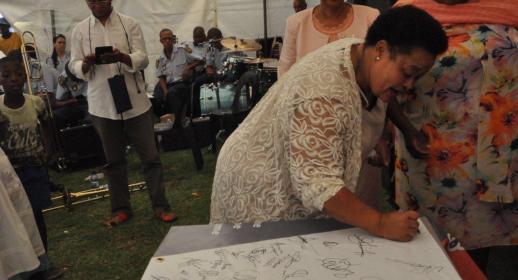 Programme Director
Programme Director
Members of the Executive Council
Executive Mayors and Councillors
Members of Civil Society
Government officials
Members of the Media
Ladies and gentlemen
South Africa achieved its hard fought and earned democracy in 1994. Central to this democracy was a commitment to gender equality and the empowerment of women. Gender equality is the founding principle and core right of the Constitution of the Republic of South Africa, Act 106 of 1996, and its founding principles elevate human rights, equality and freedom for everyone in South Africa. However, violence against women and children did not disappear with the introduction of the Constitution with its expansive Bill of Rights.
Dames en Here, ons kom van ‘n verlede wat gekenmerk is deur geweld en geweldadigheid. Grootendeels verantwoordelik hiervoor was die vorige regering wat geweld en onderdrukking nie net ondersteun het nie, maar dit ook bevorder het. Binne hierdie konteks is veral vroue en kinders blootgestel aan geweld in verskeie vorme wat insluit fisiese, emosionele, seksuele, psigologiese en ook ekonomiese verdrukking. Selfs kinders is nie hierdie vorme van onderdrukking gespaar nie.
Dit is ‘n groot onreg dat in meeste gevalle word vroue nog steeds blameer as hulle verkrag word of hulle word glad nie geglo by aanmelding van seksueel verwante misdade nie. Vir te lank moes hierdie vroue swyg en in stilswye hierdie ontberinge meemaak.
Onder die ou “Common law rule” het ‘n man die voorreg gehad om ‘n sekere mate van pyn en lyding op sy vrou toe te pas en dit was aanvaarbaar onder die wet en so het hierdie barbarse opsiening dit self in die samelewing gemanifisteer. Dit was tot ‘n groot mate aanvaar aangesien verkragting wetgewing nie sy oorsprong in persoonlike beserings wetgewing het nie maar wel in Romeinse wetgewing. Hierdie word aangehits deur die verskeie kulture, sosiale stelsels en godsdiens wat in die verlede ‘n sort van ‘n baasskap aan mans toegeien het en die onderdrukking van vroue aangemoedig het.
Ladies and gentlemen, the theme adopted by Government: “Count me in: Together moving a non-violent South Africa forward.” Is embracive; signifying the aspirations of the Preamble of the Constitution.
Dames en Here, onder die ANC beheerde Regering het ons merkwaardige vordering gemaak in die bevordering van vroue en kinderregte. Dit is veral belangrik dat ons die sienswyse van mans moet verander. Dit is iets wat in die huis begin, want in die huis is waar ons jong seuns en dames opgroei. In die huis moet die grondslag gelê word nie net as voorbeeld van hoe ‘n man ‘n vrou moet behandel nie, maar ook moet ‘n voorbeeld gestel word aan ons dogters van hoe ‘n vrou behandel behoort te word.
Dit is verblydend om op te let dat meer en meer mans betrokke raak by die bevordering en beskerming van vroue en kinderregte. Net gister het ons ‘n mans sametrekking gehad waar mans van alle fasette van die gemeenskap onderneem het om nie net kampvegters vir vroueregte te word nie, maar ook as rolmodelle sal dien in hul gemeenskaape. Hierdie mans verdien ‘n spesiale plek in ons harte en ek wil almal teenwoordig aanmoedig om net die voorbeeld wat daargestel is na te volg nie, maar ook om dit wyd en suid te verkondig en te beoefen.
Aan die voorfront van hierdie veldtog is die belangrikheid om vroue as eweknie en as ons gelyke te aanvaar. Want slegs dan sal mans ons vroue respekteer en met deernis en menslikheid behandel.
Die ander been van ons strategie is om bewusmaking van geweld teen vroue en kinders op te skerp en te verkondig. Die negatiewe impak van hierdie euwel moet bekendgemaak word en ons moet nie net hierdie veldtog beperk tot hierdie tydperk nie, maar dit moet elke dag deel uitmaak van ons verpligtinge. Alhoewel hierdie veldtog deur die Verenigde Nasies onderskryf word en vanaf 25 November tot 10 December jaarliks strek, moet ons dit nie net tot hierdie tydperk beperk nie, maar moet dit heeljaar onderhou word.
Dit als begin in die huis soos ek alreeds gesê het. Ons verstaan dat deesdae het ons baie streng kinders met gehoorsame ouers en dit is ‘n onding wat daadwerklik reggestel moet word. Ons kan nie in ‘n samelewing voortleef waar ons ons waardes verloor ten koste van wat gesien word as ‘n moderne samelewing nie. Ons moet terugkeer na ‘n tyd waar God en die kerk sentraal tot ons daaglikese lewe is. In ‘n samelewing waar God die anker van ons bestaan is sien ons vooruitgang en vrede.
Ek wil hiermee ook die gebruik en misbruik van dwelms aanspreek. Dit is alombekend dat dwelms en drank ‘n groot rol speel in geweld en wetteloosheid. Ons Provinsie is vervuil van dwelmhandelaars wat ons kinders in die verslawing van dwelms vasgevang het. As regering doen ons ons bes om hierdie aanslag op ons gemeenskappe af te weer, maar dit vereis dat ons saam moet staan en hande vat indien ons hierdie oorlog wil wen. Ek staan hier vandag met oortuiging dat ons wel saam as oorwinnaars uit hierdie stryd sal tree en saam sal ons veilige gemeenskappe nalaat vir die geslagte wat kom. Dit verg beide wilskrag en uiwer en ons kan dit doen. Ons het die onmoontlike vermag deur ‘n regering wat haat en onderdrukking beoefen te oorwin en ons sal weer veilige gemeenskappe daarstel.
Domestic violence continues to be a deadly crime, a social menace, and a costly public health and economic problem. The brutal killing of women and children despite laws having been instituted to criminalize brutal behavior and to improve the safety of women and children shows that there is a need to move from policy to action and provide stronger focus than ever on prevention and early intervention to support women and children against this scourge
On the other hand, while there has been an improvement in arrests of alleged perpetrators, there has also been a serious miscarriage of justice, where the alleged perpetrators are released while the stakeholders within the criminal justice system play the blame game. As government we must desist from the blame game because it causes communities to lose confidence in the justice system.
We are also encouraged that there has been a decline in the commission of violent crimes against women as indicated in the release of the South African Police Services release of crime statistics. As a Province we will continue to fight the scourge of violence not only against women, children and the vulnerable, but against all people we serve. We have vowed to serve and protect and by God we will uphold that oath.
In its 2014 Election Manifesto, the ANC committed that: “We will continue to prioritise incidents of domestic violence and crimes against women and children by further strengthening the Sexual Offences and Community Affairs (SOCA) Unit and pursuing a multi-disciplinary approach in our fight against violence against women and children Including:
- The integration of the Criminal Justice System including access to justice;
- As well as continue to improve the detection of crime and efficiency in the courts
While it is the primary responsibility of Government to provide strong leadership and a coordinated and integrated approach to tackling this scourge, reducing violence against women and children is a shared responsibility across the South African society and cannot be achieved by Government alone. It therefore becomes important for us to live the theme, “Count Me In: Together Moving A Non-Violent South Africa Forward.”
This year our Provincial campaign also aims to provide a platform to engage all stakeholders across race, gender, age and other divides to commit to collectively fight this scourge in society and to relook at the available strategies on the eradication of violence against women and children. This calls for social cohesion and is not a programme for a particular grouping, but it is a call to all members of society because it deals with our integrity
In its Discussion Paper on Gender Based Violence the ANC raised concerns on the levels of violence against women and children, stating that there are serious concerns about the levels of gender based violence, especially sexual violence in the country and hence government had sought to reform its laws and policies regarding gender based violence.
Structural barriers in the economic, political, social and environmental levels reinforced racial and gender inequalities. Women were marginalized and discriminated against in terms of economic opportunities, the labour market as well as access to land, credit, and finance, which makes them prone to violence and abuse.
As I conclude I want us to imagine living in a society where we no longer read or hear about the abuse that women and children often suffer at the hands of heartless perpetrators. A society where they are safe at home, at school and at work; where children play safely outside and women walk freely in the streets. This is the society that the 16 Days of Activism for No Violence against Women and Children hopes to achieve. I urge all of you to recommit yourself to the pledge to be counted in moving forward a non-violent South Africa. A pledge that says:
Count Me In: I will protect my sister
Tel my in: Ek sal ‘n helpende hand uitreik na my broer in nood.
Count Me In: I care for the safety of women and children
Tel me in: Ek sal ‘n skoon en nugter lewe lei
Count Me In: I will financially provide for my family
Tel my in: Ek sal God as my anker daarstel
Count Me In: I will be my brother’s keeper.
Tel my in: ek verbind my tot die genesing van my gemeenskap.
Count me in: I am the solution
I thank you



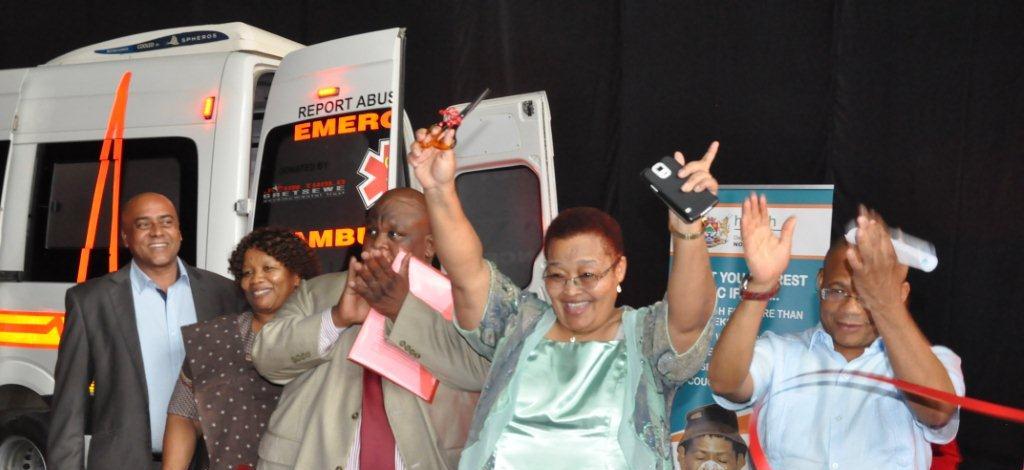 Address by the Premier of the Northern Cape, Ms Sylvia Lucas, on the occasion of the Handover of Ambulances and Patient Transport Vehicles held at the Mittah Seperepere Convention Centre in Kimberley on 23 September 2014
Address by the Premier of the Northern Cape, Ms Sylvia Lucas, on the occasion of the Handover of Ambulances and Patient Transport Vehicles held at the Mittah Seperepere Convention Centre in Kimberley on 23 September 2014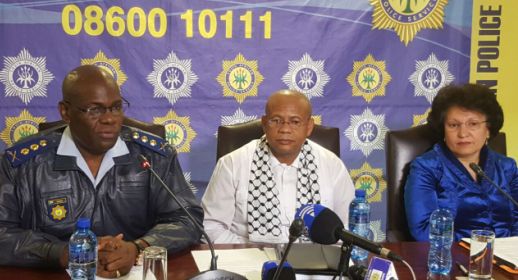 The annual release of the crime stats indicates if we are on the right path, where we need to improve and work harder to ensure that we protect and serve our people to the best of our abilities.
The annual release of the crime stats indicates if we are on the right path, where we need to improve and work harder to ensure that we protect and serve our people to the best of our abilities.
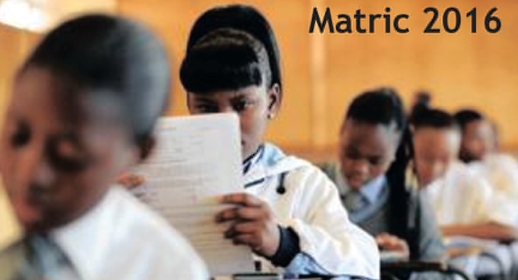

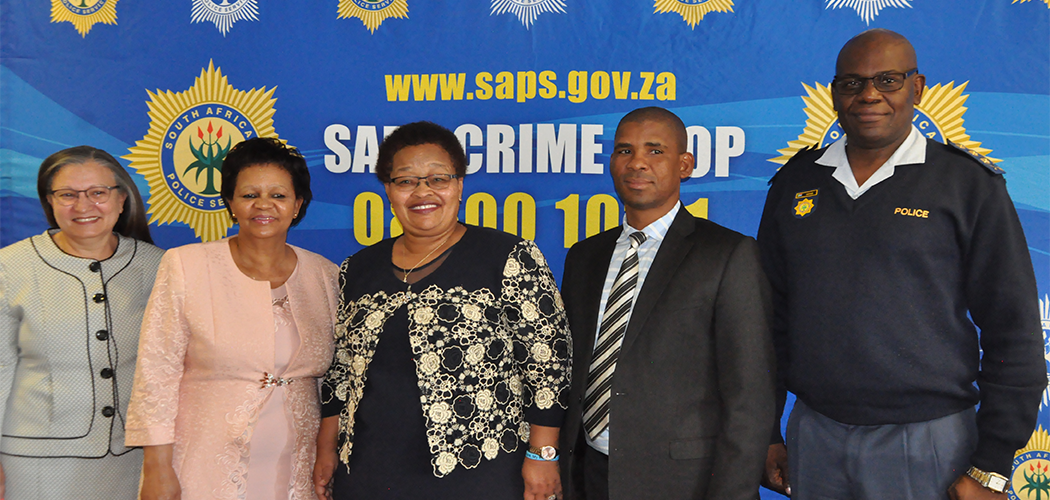 The Northern Cape Premier’s Office hosted the presentation of the 2017/2018 Crime Statistics Report on 15th October 2018.
The Northern Cape Premier’s Office hosted the presentation of the 2017/2018 Crime Statistics Report on 15th October 2018.